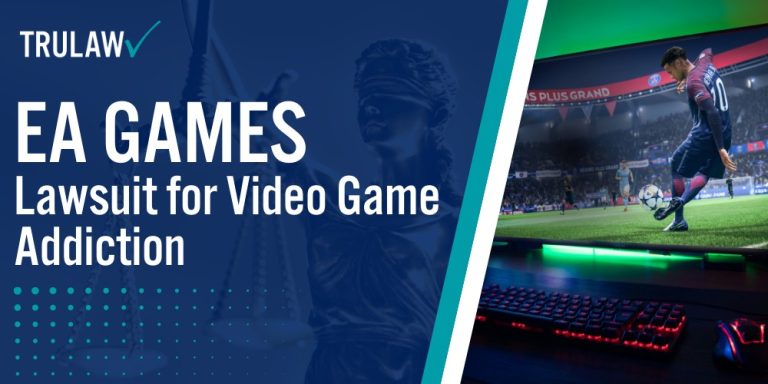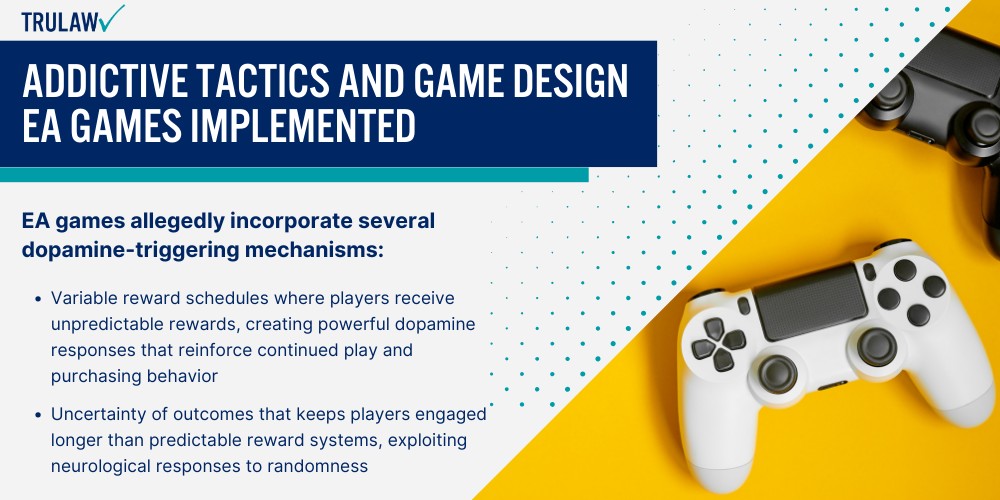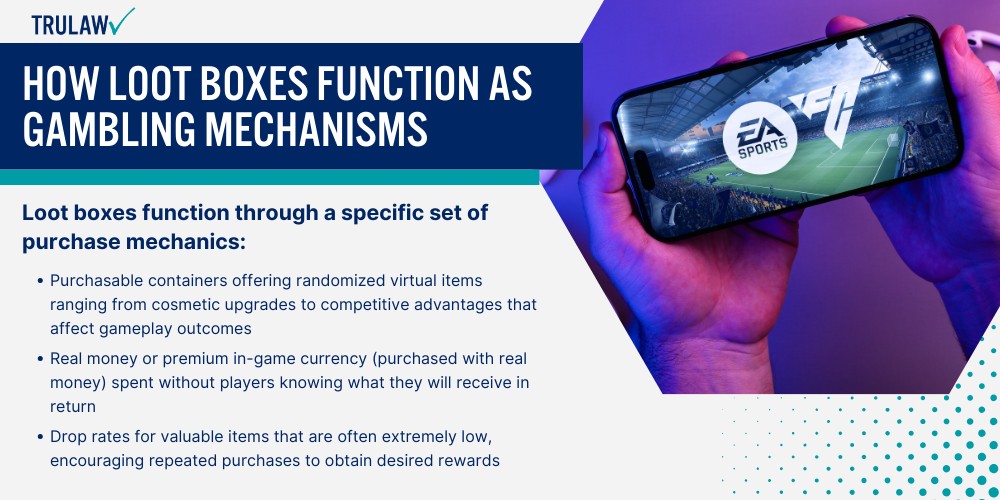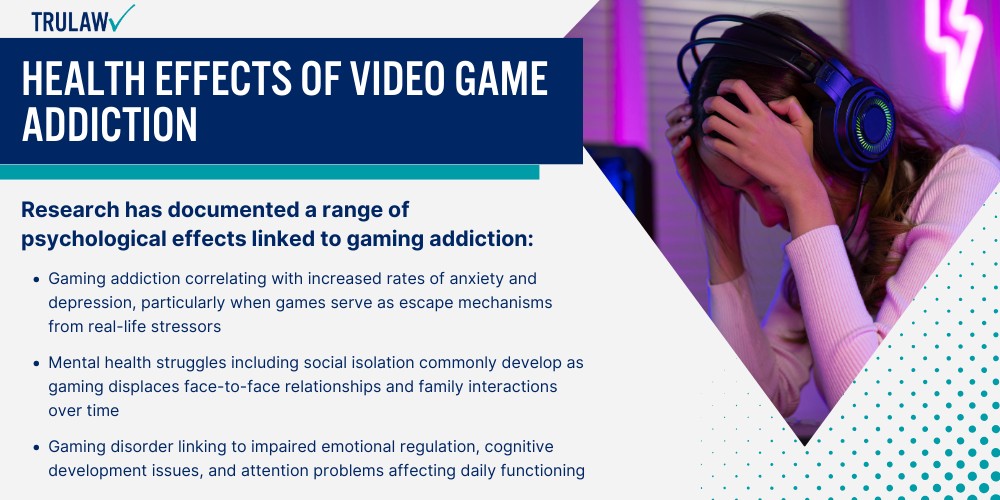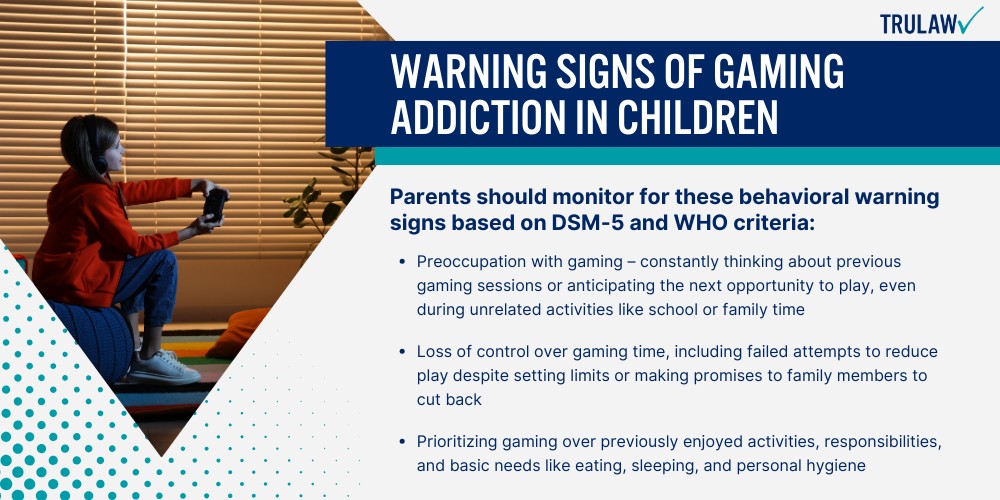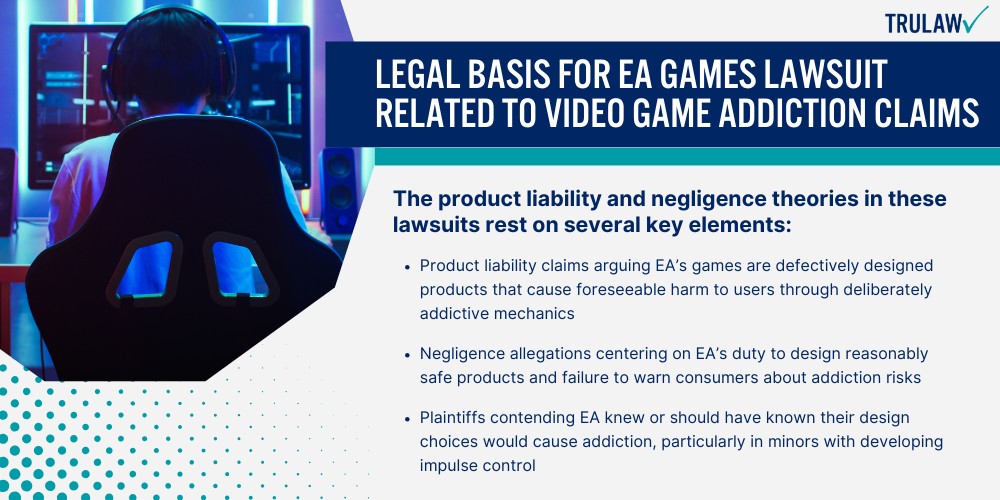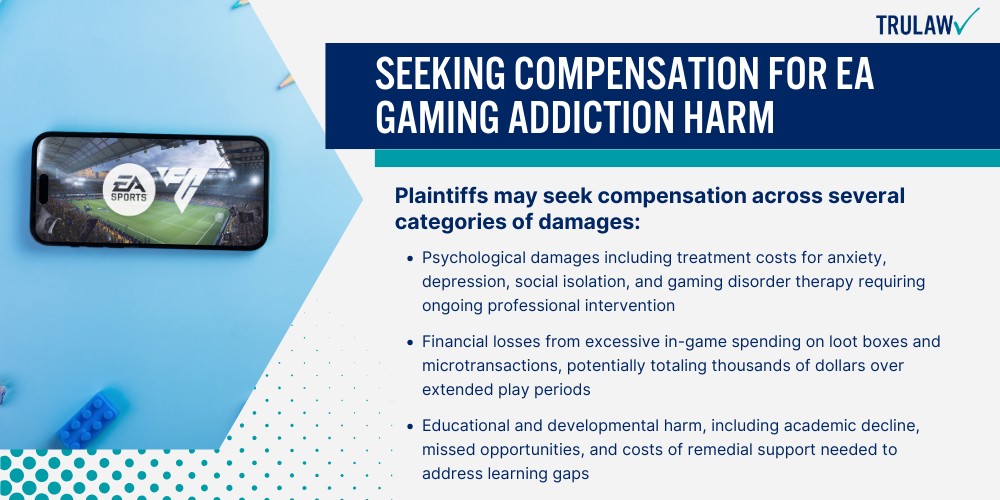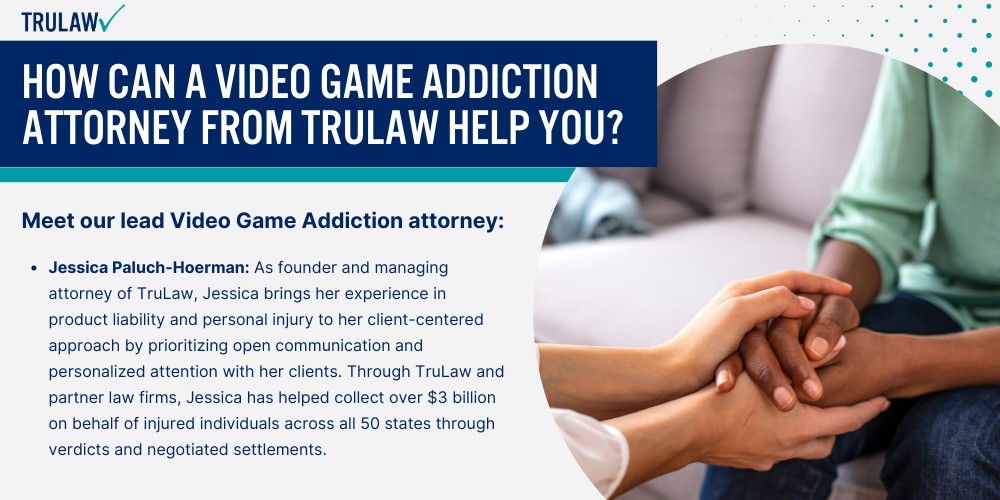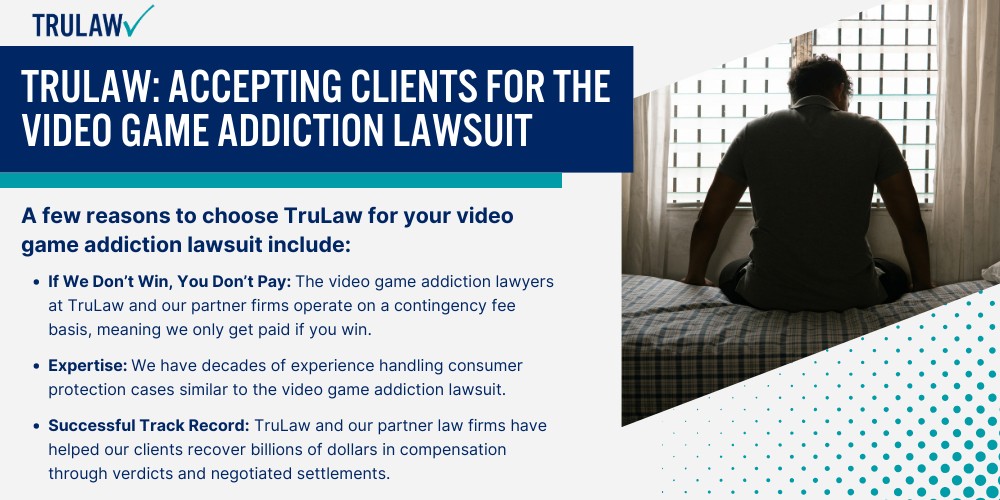The specific EA game titles named in addiction-related litigation share common features that plaintiffs argue create addictive gameplay loops particularly harmful to younger audiences.
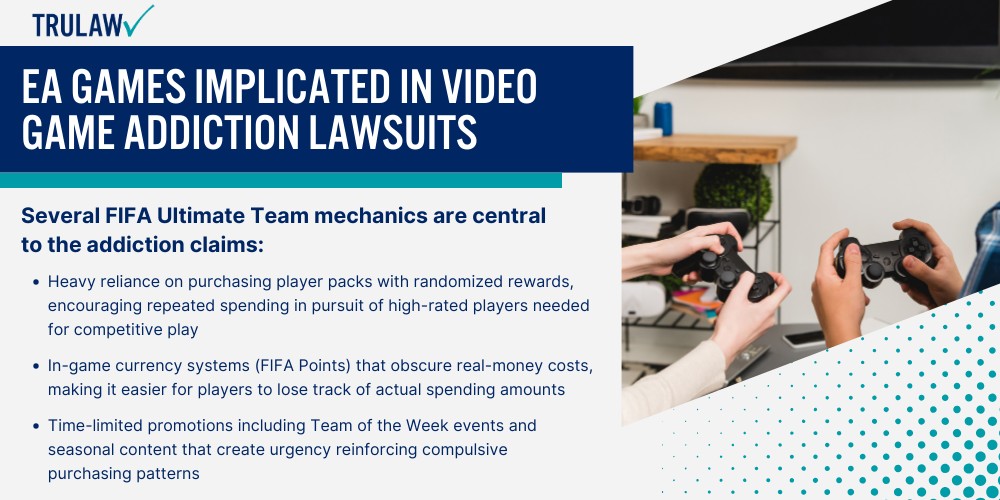
EA generated $1.62 billion in revenue from Ultimate Team modes alone in fiscal year 2021, with Ultimate Team responsible for 29 percent of the company’s total revenue during that financial year – a figure that underscores the monetization stakes driving these design decisions.
FIFA Series and Ultimate Team Mode
FIFA’s Ultimate Team mode stands at the center of online gaming addiction allegations against EA, representing the company’s most lucrative implementation of loot box mechanics.
FIFA Ultimate Team allows players to build custom teams and compete against others, but new team members of various rarity and ability are unlocked through blind box-style packs that function similarly to gambling.
Several FIFA Ultimate Team mechanics are central to the addiction claims:
- Heavy reliance on purchasing player packs with randomized rewards, encouraging repeated spending in pursuit of high-rated players needed for competitive play
- In-game currency systems (FIFA Points) that obscure real-money costs, making it easier for players to lose track of actual spending amounts
- Time-limited promotions including Team of the Week events and seasonal content that create urgency reinforcing compulsive purchasing patterns
FIFA Ultimate Team revenue grew from $587 million in fiscal year 2015 to $1.62 billion by fiscal year 2021, demonstrating exponential growth in this monetization model.
Player packs offer randomized cards with varying rarity levels, and drop rates for valuable items remain extremely low, creating persistent incentive for repeated purchases.
Madden NFL and NHL Series
Madden NFL’s Ultimate Team mode mirrors FIFA’s model, using randomized player packs as the primary progression mechanism for building competitive rosters.
The lawsuit names popular titles including the NFL and FIFA franchises alongside other EA games, recognizing the consistent pattern of monetization across EA’s sports portfolio.
The Madden NFL and NHL series employ monetization features that mirror FIFA’s model:
- Madden NFL’s Ultimate Team using randomized player packs that mirror FIFA’s loot box model, requiring continuous investment to build competitive teams
- NHL games employing similar loot box systems that demand ongoing spending to remain competitive against other players
- Both titles releasing roster updates and new content that drives continued engagement and additional spending throughout each season
The Canadian class action specifically names Madden NFL 10 through Madden NFL 22 and multiple NHL series titles among the games covered.
Ultimate Team revenue combines earnings from all EA sports games including Madden NFL and NHL, contributing to the company’s substantial loot box income stream.
Apex Legends and Other EA Titles
Apex Legends and EA’s broader portfolio extend loot box mechanics beyond sports games into action titles, violent video games, simulation, and mobile gaming categories.
Popular EA games featuring loot boxes span numerous genres, reaching diverse player demographics with similar monetization strategies.
Beyond sports titles, additional EA games have been implicated in the litigation:
- Apex Legends, a free-to-play battle royale game using “Apex Packs” (loot boxes) offering randomized cosmetic items purchased with real money
- The Sims series and NBA Live incorporating microtransaction systems named in broader litigation against EA
- EA’s mobile games extending these monetization practices to smartphones, increasing accessibility for younger users
The full list of EA titles named in litigation includes over 60 games: FIFA series (09-22), Madden NFL (10-22), NHL series, NBA Live, The Sims, Apex Legends, Plants vs Zombies: Garden Warfare 2, Star Wars games, Mass Effect series, Battlefield series, and Need for Speed titles, with separate litigation targeting games like Grand Theft Auto.
Apex Legends attracts young gamers, raising concerns about exposure to gambling-like mechanics among minors.
Individuals harmed by any of these EA titles may have grounds for legal claims – TruLaw can provide an instant case evaluation to assess eligibility.
If you or your child has suffered harm from playing any EA title featuring loot boxes or addictive mechanics, TruLaw can help you explore your legal options.
Use the chat on this page to receive an instant case evaluation and determine whether you qualify to file a gaming addiction lawsuit today.
